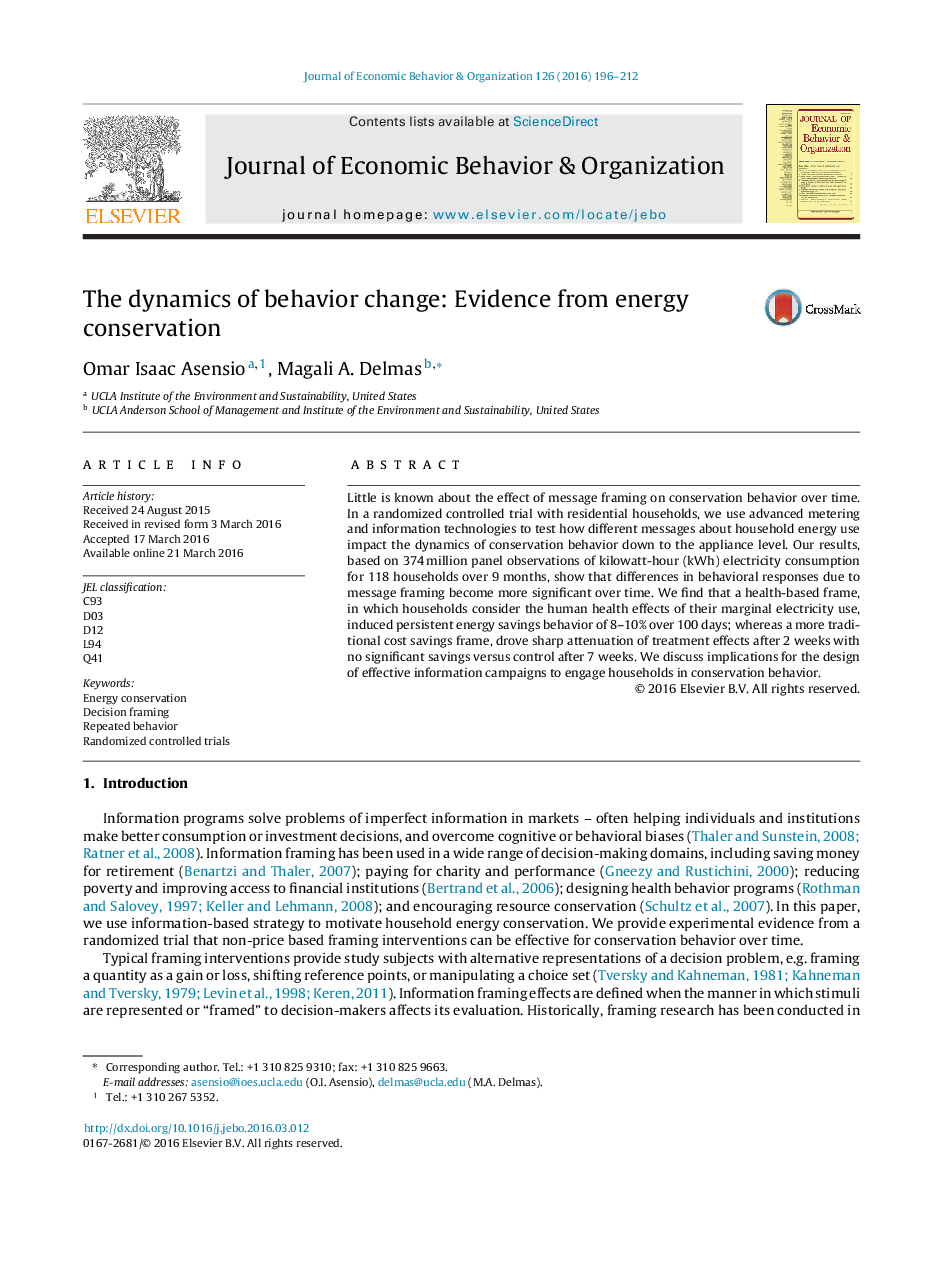| Article ID | Journal | Published Year | Pages | File Type |
|---|---|---|---|---|
| 883400 | Journal of Economic Behavior & Organization | 2016 | 17 Pages |
•In a randomized controlled trial, we test information strategies for conservation.•We use information technologies to frame conservation decisions.•We analyze 374 million kWh data in 118 households over 100 days down to appliances.•Conservation is short-lived with cost savings framing but is more persistent with health framing.•Framing can be used as a strategy to overcome behavioral barriers as complements to price policies.
Little is known about the effect of message framing on conservation behavior over time. In a randomized controlled trial with residential households, we use advanced metering and information technologies to test how different messages about household energy use impact the dynamics of conservation behavior down to the appliance level. Our results, based on 374 million panel observations of kilowatt-hour (kWh) electricity consumption for 118 households over 9 months, show that differences in behavioral responses due to message framing become more significant over time. We find that a health-based frame, in which households consider the human health effects of their marginal electricity use, induced persistent energy savings behavior of 8–10% over 100 days; whereas a more traditional cost savings frame, drove sharp attenuation of treatment effects after 2 weeks with no significant savings versus control after 7 weeks. We discuss implications for the design of effective information campaigns to engage households in conservation behavior.
Graphical abstractFigure optionsDownload full-size imageDownload as PowerPoint slide
